(https://doi.org/10.55612/s-5002-045)


Nurfarahani Norman Anuar
is currently pursuing her MSc. in Cognitive Science at Universiti Malaysia Sarawak (UNIMAS). She received her B.Sc. in the same field. She had designed and developed a cultural heritage game-based learning application for children as part of her undergraduate program. She extends her interest in digital heritage to her postgraduate research. Her research interests include Human/User-Centered Design, User Experience (UX) research, and Interaction Design.

Inmaculada Arnedillo-Sánchez
is a Professor of Learning Technologies and a Senior Researcher in KDEG in Trinity College Dublin. Her research concerns the study of learning technologies from a human-centred perspective and strives to understand behaviour and cognition to harness the value technology can bring to them. Her work involves the design, implementation and evaluation of TEL experiences, tools and environments. Her research interests include Mobile Learning, CSCL, Kinesthetic and Assistive TEL. She is an experienced principal investigator and has secured over €1.5 million in research funding. Currently she leads the MotorSense project which investigates motion detection to assess motor development in children and the DALDIS project which explores data analytics for digital assessment. Previously she led EDUWORS exploring bridges to match the skills mismatch between formal education and the labour market, CoVE: A Collaborative Virtual Environment for Children with Autism, Share.TEC: SHAring digital REsources in the Teaching Education Community and MOTILL: Mobile Technologies in Lifelong Learning among others. She has authored over 80 scientific publications, she has been programme chair and served in the programme committee of the main TEL conferences. She is a reviewer for Computers & Education, BJET, JCAL and IEEE Learning Transactions. She is a UNICEF adviser and has consulted for GE and ECDL among others. She is a recipient of the Provost Teaching Award for her outstanding contribution in the pursuit of teaching excellence. She has coordinated postgraduate and undergraduate academic programs and supervises PhD and master students. She received a Ph.D. and an M.Sc. in Information Technology in Education from Trinity College. She graduated from the University of Western Sydney, Australia, in Interpreting & Translation.

Rubén Baena-Pérez
is a PhD student in the Department of Informatics and Engineering of the University of Cádiz. He has a Bachelor of Fine Arts, a Master in Design and creation of video games and a higher technician degree in development and creation of multiplatform applications. He has extensive previous experience in the creation of multimedia and interactive content as well as in entrepreneurship.

Alice Barana
is a post-doctoral researcher in Didactic of Mathematics at the Department of Molecular Biotechnology and Health Sciences of the University of Turin. She is also a teacher of Mathematics in the upper secondary school. She studies learning and teaching processes in digital learning environments integrated with systems for advanced computing and automatic assessment. She is a member of the DELTA – Digital Education for Learning and Teaching Advances – Research Group of the University of Turin, and she collaborates in several research and didactic projects on innovative methodologies for learning Mathematics.

Elena Barberà
Doctor in Psychology and full Professor she is currently Head of the Doctoral Program in ICT and Education of the Open University of Catalonia in Barcelona (Spain). Her research activity is specialised in the area of educational psychology, relating in particular to knowledge-construction processes and educational interaction in e-learning environments, evaluating educational quality and assessing learning, distance learning using ICT and teaching and learning strategies.
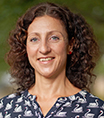
Ilona Buchem
Ilona Buchem is Professor for Media and Communication in Department of Economics and Social Sciences at Beuth University of Applied Sciences Berlin. Her research focuses on the new forms of technology-enhanced learning, communication, cooperation and education with digital media. She is the head of the Communications Lab at Beuth and teaches in bachelor and master programs in digital business and media informatics.

Linda Castañeda
holds a Ph.D. in educational technology and is an Associate Professor in educational technology at the Faculty of Education of the University of Murcia, in Spain. Thanks to her educational background in education, she has a strong interest in making EdTech research more educational. A participant in national and international research projects on the implementation and impact of technology in both formal and non-formal learning contexts, Linda has closely collaborated with different research institutions in Europe and abroad, and continues to work with institutional initiatives as an advisor. Dr. Castañeda has been a Visiting Scholar at KMi at OU, GSE of UCBerkeley, among others. She is an editorial board member of various international academic journals, has published papers and book chapters in both Spanish and English, and is a member of the Association EDUTEC, NOVADORS, and the PLEConf Community. Linda’s current research portfolio includes critical perspectives on educational technology, competencies for the digital era (definition, development and assessment), strategical approaches to teachers’ professional development, socio-material perspectives of emergent pedagogies, and Personal Learning Environments.

Antònia Darder
is Lecturer of Educational Technology in the Department of Applied Pedagogy and Psychology of Education at the University of Balearic Islands (Spain) and research member of the Group of Early Childhood, Technology, Education and Diversity in the field of Educational Technology at the same university. She received her PhD in Educational Technology at the University of Balearic Islands (Spain). Her research interests include online PhD supervision,self-regulated learning with digital media,integration of technology in education, and the potential of concept maps in education and research.

Bárbara de Benito
is Lecturer of Educational Technology in the Department of Applied Pedagogy and Educational Psychology at the University of Balearic Islands (UIB, Spain). Being a researcher of the Educational Technology Group of the UIB since its creation in 1992 to date (now Group of Early Childhood, Technology, Education and Diversity), she has taken part in several research projects – some of them R+D – related to design and analysis of teaching materials, design, implementation and assessment of virtual learning environments, knowledge and learning management systems, self-regulated learning and student agency in Technology-Enriched LearningEnvironments. Founder member and advisor of the spin-off Zairja. Soluciones en Formación y Gestión del Conocimiento S.L. (Training and Knowledge Management Solutions). Member of EDUTEC.
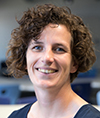
Lien de Bie
is the project manager of i-Learn, a project aimed at making specific technology for personalised learning available to primary and secondary schools in Flanders (BE) through an open portal.

Fien Depaepe
is an associate professor. Her main research interest deals with the instructional design and educational effectiveness of technology-enhanced learning environments.

Eva Durall
is a postdoctoral researcher at the Learning Environments research group (Legroup) at Aalto University Media Lab. Her research interest is the design of learning environments and scenarios mediated by technology, with particular emphasis on supporting reflection, self-regulation and collaboration. Eva’s current research lines focus on the use of participatory and co-design methods in learning and education. Eva has participated in several research and innovation projects dealing with the use of ICT in Higher and Primary Education, as well as in informal and non-formal learning. She has also coordinated international reports on technology forecasts in learning and education, as well as co-design processes in learning design.

Sara Eloy
architect, PhD in Architecture (2012). Eloy’s main areas of research include Digital Technologies applied to Architecture, Shape Grammars, Virtual and Augmented Reality, Analysis of the building space namely considering space perception, and Housing Rehabilitation. She is the director of the Information Sciences Technologies and Architecture Research Center (ISTAR-IUL) where she is a fellow researcher. She has curated several exhibitions being the latest “Artificial Realities: Virtual as an Aesthetic Medium for Architectural Ideation” in the scope of Lisbon Architecture Triennale 2019. She has participated in national and international research projects and published her work in international peer review journals. Eloy is an Assistant Professor at Iscte – Instituto Universitário de Lisboa, Lisbonm and teaches disciplines of Architectural Computer Aided Design, Drawing, new technologies applied to Architecture and Research Methodologies.

Peter Fröhlich
is a Senior Scientist at AIT, where he leads a team of researchers dealing with contextual engagement and automation experience. His research interests include user experience in complex and automated environments, as well as persuasive technologies for sustainable and privacy-aware behavior. Peter holds a master’s degree in Psychology from the University of Salzburg (2001) and a PhD in Applied Psychology from the University of Vienna (2007). He has authored more than 70 peer-reviewed scientific papers, and he is a regular organizer, editor and reviewer for renowned conferences and journals, such as the Journal of Personal and Ubiquitous Computing, Mobile HCI, Automotive UI, and CHI.

Iolanda Garcia
PhD in Pedagogy (Education) from the University of Barcelona (2008). She is currently an associate professor in the Psychology and Educational Sciences Department of Universitat Oberta de Catalunya (Spain). Her research is focused in the following areas: learning (co)design, autonomous learning and learning regulation in open, social and networked environments, digital culture, learning ecologies and teacher professional development.

Adriana Gewerc-Barujel
is a full professor of Educational Technology at the University of Santiago de Compostela (Spain) and director of the Stellae research Group (http://stellae.usc.es) She has been a head of the first e-learning master’s degree on Multimedia Didactics Resources Design. She was responsible of more than 15 research projects and contracts, all of them funded by public institutions. Author of seven books and more than 100 articles and book chapters and she led so far over 9 doctoral thesis on the educational technology field.
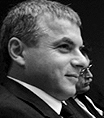
Carlo Giovannella
Graduated in Physics, he worked long time in solid state physics as an expert of complex systems. Nowadays can be considered a ‘Designer for the experience’: expert in the technology-enhanced learning, interaction design, computer-mediated communication, design and management of processes, process and product innovation, ecosystems monitoring and benchmarking. Since 2015 is the President of ASLERD (Association for Smart Learning Ecosystems and Regional Development). It has been the Scientific Director of the Creative Industries Area at the Consorzio Roma Ricerche from 2013 till 2016.
He is member of the Dept. of History, Cultural Heritage, Education & Society of the University of Rome Tor Vergata, where he is chair of the ISIM_garage (Interfaces and Multimodal Interactive Systems), a research lab devoted to design and development of TEL-environments, tools and methods for education, interaction design, and more.

Begoña Gros
received the PhD degree in Pedagogy at the University of Barcelona in 1987. She was Vice-rector of Research and Innovation at the Open University of Catalunya (2007-2012), and currently she holds the academic position of professor at the University of Barcelona. She is the director of the research group Environments and materials for learning (EMA). Her research activities are in the area of the use of ICT in education, digital games for learning, learning design and innovation. During the past years she has also focused on emergent technologies for advanced education purposes. She is an author of more than 100 publications in the areas of the use of ICT in education. She has coordinated and participated in national and international projects funded by the European Union.
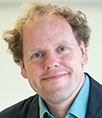
Tobias Hoelterhof
is Professor for Educational Science in the Department of Health Science
at the Catholic University of Applied Science in Cologne. His research focuses on digital media in learning and teaching, philosophical aspects of digital cultures as well as development of learning platforms. He teaches in bachelor and master programmes for teachers in health care and health care management.

Gerd Kortuem
is Professor and Chair of Internet of Things in the Industrial Design Engineering Faculty at TU Delft and principle investigator at the Amsterdam Institute for Advanced Metropolitan Solutions. His research focuses on the intersection of the Internet of Things and design and explores data, algorithms, and smart materials as key building blocks for intelligent products and services in domains such as healthcare, wellbeing, smart cities, and sustainability. From 2010-2016 he was Professor at the Open University and Deputy Director of the smart city initiative MK:Smart (http://www.mksmart.org) where he directed research and innovation initiatives on citizen participation, urban energy, data literacy and smart city education. He’s member of the editorial board of IEEE Pervasive Computing and serves as Associate Editor of the Journal ‘Proceedings of the ACM on Interactive, Mobile, Wearable and Ubiquitous Technologies (IMWUT)’. Prof Kortuem has worked in various roles in the software industry (IBM, Apple etc.), and was co-lead of the FutureLearn MOOC on Smart Cities.

Peter Kun
is an interaction design researcher at the cross-section of data science and design theory. He relentlessly investigates how emerging technology could be used in design. Currently as a postdoc at Aalborg University Copenhagen, he investigates positive uses of social algorithms to let communities benefit from diversity. He has a background in design inquiry through data (PhD in Design, Delft University of Technology), interaction design and technologies (MSc, Chalmers University of Technology) and a diverse past from working as a trainer-facilitator, a co-founder of an education technology startup, and a BSc degree in Industrial Management.

Teemu Leinonen
is an Associate Professor of New Media Design and Learning at the Aalto University School of Arts, Design and Architecture. Professor Leinonen leads the Legroup research group of the Aalto Media Lab. Leinonen’s area of expertise is technology enhanced learning and new media design; especially related to applications, solutions and services of (and for) e-learning, collaborative learning, collaborative group work, creative work and art and design practices. He has published over 35 peer-reviewed scientific articles, over 40 non-refereed articles, 2 books and over 20 published software prototypes, web services and

Marcelo Fabián Maina
Is Associate Professor at Open University of Catalonia in Barcelona (Spain). He has a PhD in Knowledge and Information Society by UOC and a M.Sc. in Communication from the University of Montreal. He is currently Director of the Master Program in Education and ICT. His research interests encompass technology enhanced learning and online learning. He focuses on open and flexible learning, learning regulation, active pedagogies, learning ecologies and quality in e-learning.
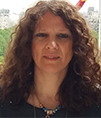
Marina Marchisio
is a full professor of Complementary Mathematics at the Department of Molecular Biotechnology and Health Sciences of the University of Turin. Her research is focused on learning and teaching Mathematics and scientific disciplines with digital methodologies and innovative technologies. She coordinates the DELTA – Digital Education for Learning and Teaching Advances – Research Group of the University of Turin. She is a member of the Problem Posing and Solving working group of the Italian Ministry of Education. She coordinates several research and didactic projects, held and organized numerous conferences, and is the author of about 100 publications on Algebraic Geometry and Digital Education.

Victoria I. Marín
is Post-doctoral Researcher in the Faculty of Education and Social Sciences in the area of Educational Technology at the University of Oldenburg. She received her PhD in Educational Technology (with honours) at the University of the Balearic Islands (Spain). Member of the Association for the Development of Educational Technology and New Technologies Applied to Education (EDUTEC) and of the Centre for Open Education Research (COER) (Oldenburg, Germany). Research Collaborator of the Group of Early Childhood, Technology, Education and Diversity of the Institute for Research and Innovation in Education (Palma, Spain). Her research interests in higher education include e-learning, e-portfolios, self-regulated learning with digital media, digital agency, personal learning environments (PLEs), pre-service teacher training, social media in training and professional development.

José Miguel Mota
received the master’s degree in computer science with the Universitat Oberta de Catalunya, and the Ph.D. degree from the University of Cádiz, Spain. He is currently. He has held academic educational positions in different private centers and currently is an Associate Lecturer with the University of Cádiz. His research interests include technology-enhanced learning, mobile learning, augmented reality, and learning analytics

Ingrid Mulder
is an expert in transformative and social design. As an Associate Professor of Design Techniques at Delft University of Technology, Faculty of Industrial Design Engineering and director of the Delft Design Lab Participatory City Making, she studies the city as a space for transition while experimenting with participatory techniques and systemic design approaches for scaling and infrastructuring social change. She has a background in policy and organization sciences (MA, University of Tilburg) and educational science and technology (Ph.D., University of Twente), and started her research career anticipating future technologies impacting society within the national Top Technology Institute on Telematics. As part of her previous readership in digital social innovation, she founded Creating010, a trans-disciplinary design-inclusive research centre enabling collaborative futuresmaking in Rotterdam.

Mohd Kamal Othman
is a Senior Lecturer at the Universiti Malaysia Sarawak (UNIMAS). He received his PhD in Computer Science (Human Computer Interaction) from University of York UK and Master’s degree in Virtual Environment: Technology and Practices from the University of East Anglia (UEA) UK. His research interest is multi-disciplinary, ranging from Cognitive Science, Human-Computer Interaction, Computer Science, Virtual Reality, Artificial Intelligence, and Learning Science and Education.

Marcello Passarelli
is a PhD in Psychology, Anthropology, and Cognitive Sciences working in ITD-CNR as a research fellow since 2017. His research interests include implicit measures, statistical modeling, and social cognition, with a strong quantitative focus. During his stay in ITD-CNR, he worked on the H2020 Gaming Horizons project, focusing on the social impact of video games and gamification, on the Erasmus+ CODUR project for quality assurance of e-learning institutions, and on the Erasmus+ ENhANCE project, which designed a European curriculum for family and community nurses.

Donatella Persico
is research director at CNR-ITD. She has been active in the field of educational technology since 1981. Her major research interests include learning design, e-learning, self-regulated learning, teacher training, game-based learning and learning analytics. She was research fellow at Bradford and Exeter university, UK, Glasgow Caledonian Academy, UK, and at the Universidade de Santiago e Compostela, Spain. She has been involved in several teacher training programmes as a lecturer in educational technology. She is author of educational material and scientific publications of various kinds, including books, educational software, multimedia material and research papers concerning various aspects of educational technology. She is editor of the Italian Journal of Educational Technology and sits on the editorial board of international and national journals, on the PhD board in Philosophy and Educational Sciences of the Ca’ Foscari university of Venice and has a long standing experience in the management of national and international projects.

Kamakshi Rajagopal
is a senior researcher in instructional design and technology. Her research interests include the design and development of innovative learning technologies.and continuous professional development through networked learning strategies.
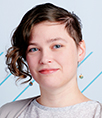
Michaela R. Reisinger
Scientist at AIT, studied physical anthropology at the University of Vienna with a focus on human ethology and osteology. She has previously worked on stress-measurement, socio-economic status and social engineering vulnerabilities in company environments, gaining experience in national and international research projects. Currently, Michaela is researching user experience in the context of smart cities, intelligibility and control in smart home situations. Her other projects investigate and the dynamics of artifact interaction, technology development and technology use in value-centred and/or emotional spaces (e.g. the home, cybersecurity, fandom) and how they connect to identity and its negotiation (e.g. gender, individual values, situative role).

Virginia Rodés-Paragarino
is Associate Professor, Coordinator of the Virtual Learning Environments Program of the and Co-Responsible of the Interdisciplinary Centre on Open and Accessible Educational Resources, at Universidad de la República, Uruguay.Her research line address the study of educational technologies in Higher Education, with emphasis on Open Education. She has led numerous national and international R&D projects, resulted in the development and dissemination of educational technologies and open and accessible education initiatives in Uruguay and in Latin America. She is a member of the Open Education Advisory Board of the Open Education Working Group, Open Knowledge International, integrates the LATAM Regional Node of the Open Education Consortium, is part of the coordinating group of the Latin American Community of Learning Objects and Technologies (LACLO), and she is alumni of the Global OER Graduate Network (GO-GN).

Iván Ruiz-Rube
is an Assistant Professor at University of Cadiz, Spain. He received his Master degree in Software Engineering and Technology from the University of Seville and his PhD from the University of Cadiz. His fields of research are technology-enhanced learning and software process improvement. He has published more than 20 journal papers and 3 book chapters in these fields. Previously, he has worked as a software engineer for consulting companies such as Everis Spain S.L. and Sadiel S.A.

Johann Schrammel
Scientist at AIT, studied education science, sociology and group dynamics, holds a Master degree in adult education from University of Graz and is a skilled trainer for team and organizational development, professionally trained in group dynamics with experience as group moderator. Johann is active in the field of HCI for more than ten years and is the author of more than 40 peer-reviewed publications. He has successfully led numerous national and international research projects, focusing on different topics such as interacting with intelligent systems, information visualization, persuasion and user experience.

Flávio Serpa
architect, attended the University of Azores and ISCTE – Instituto Universitário de Lisboa from where he got is Master degree in Architecture in 2018. Still in Azores, he participated and won the competition Quiosque PopCraft with André Vieira. The project was built on eight islands in the Azores. Since 2018 Serpa worked in two architecture practitioner offices, in one he worked mainly in design projects for new construction and in the other in design projects for the rehabilitation of existing buildings and sites. Serpa master thesis focused the use of 3D modeling and simulation tools in architecture and he continues to learn 3D tools namely focusing on the use of BIM tools.

Stefan Suette
Junior Scientist at AIT, studied ecology at the University of Vienna with a focus on stress adaptation and resilience on individual and system scales. Participating in excursions and workshops he gained international experiences. Since 2010 he is working in the context of technology experience conducting user studies in the lab and in the field. Big projects have focused on mobility systems e.g. car and traffic context or on the usage of public screens. He has strong interests in questions of enhancing people’s possibilities by advanced mobility systems, better public participation and for their personal work context.

Gemma Tur
holds a Ph.D. in educational technology from the University of the Balearic Islands (UIB). She is lecturer in the Department of Applied Pedagogy and Educational Psychology of UIB and researcher in the Group of Infancy, Technology, Education and Diversity in the field of Educational Technology of the same university. She is the coordinator of diverse programs in Ibiza off-campus Centre such as Primary and Secondary Teacher Education programs and the Open Senior University. She has been involved in research in national and international groups, collaborates in many conferences and has published numerous articles in the field. Her research interests include e-portfolios and Personal Learning Environments, the open education for teachers’ professional development, social media for learning and in general, technology-enhanced learning in Teacher Education.
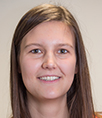
Stefanie Vanbecelaere
is a PhD student. Her research interests include the effectiveness of adaptive learning ofmath and reading.

Rani Van Schoors
works as a PhD student on the i–Learn project. Her main fields of interest are educational technology and instructional design, with a focus on digital personalized learning tools.

Marjo Virnes
is a Chief Competence Officer at Autism Foundation Finland. Prior, she was a post doc researcher in LeGroup. Marjo holds a Doctor’s degree in Computer Science in the field of Educational Technology and has over ten years of experience in the research and development of educational technologies and pedagogical practices with and for children and young people in general and special needs education in Finland and abroad. She has published 30 scientific articles of her research outcomes and worked as a researcher and in a manager position in several national and international R&D projects in 2001-2018.
